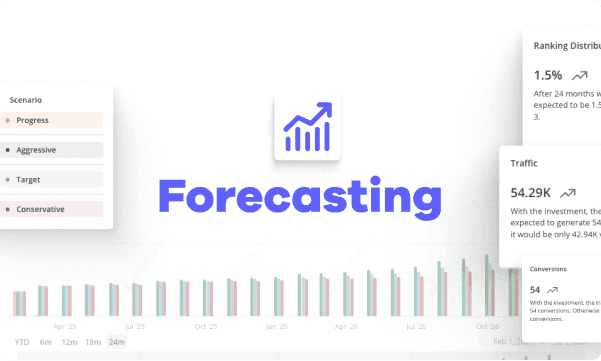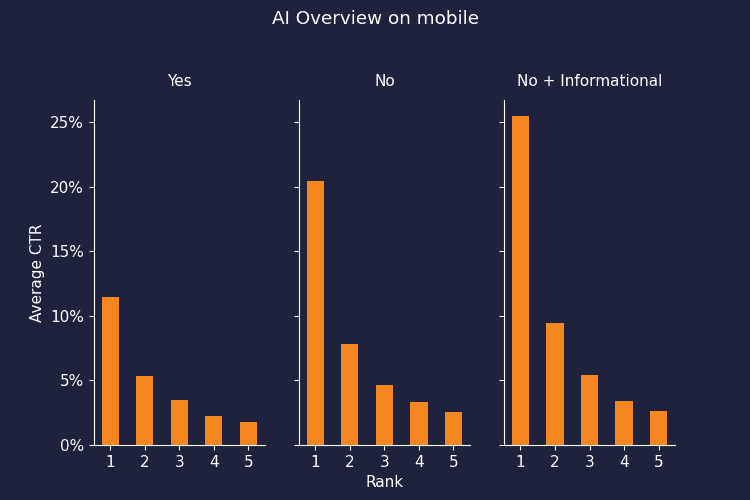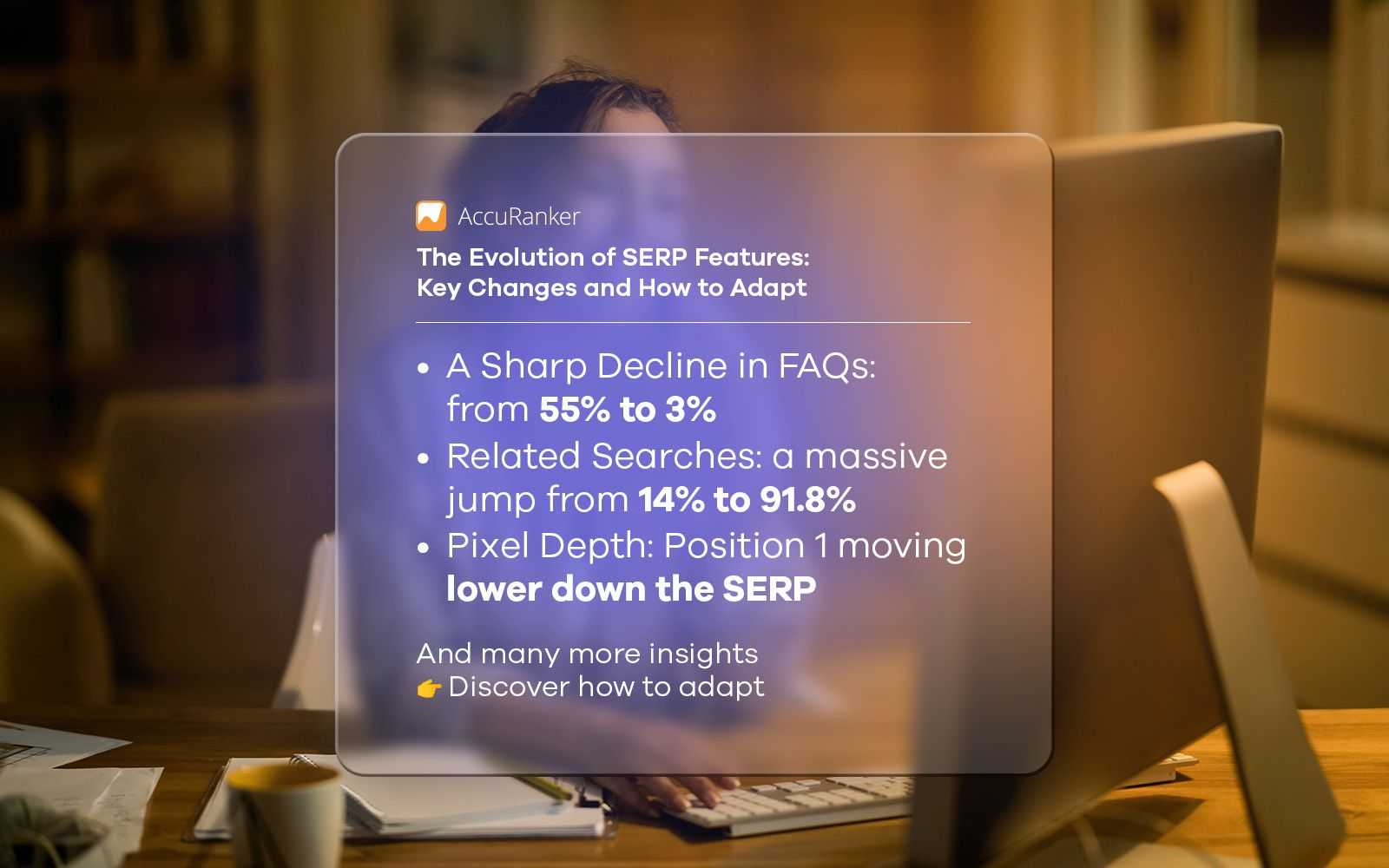7 Crucial SEO KPIs that you aren’t monitoring close enough
Last updated on Tuesday, October 24, 2023

Marketing results are not always so easy to follow. But, one of the aspects that allows making clear conclusions is SEO. Search Engine Optimization (SEO) is an extensive topic with many KPIs to keep track of. Yet, some SEO KPIs can be a real game-changer.
KPIs can differ depending on the business goals, but unfortunately, many businesses neglect them.
Let’s see which SEO KPIs you’re maybe not monitoring closely enough.
What are SEO KPIs?
One of the worst mistakes that a business can make is to proceed with changes without having a clear idea of what the goal is and how to measure it. Thus, it’s very important to define specific SEO objectives and track their fulfillment. Therefore, SEO KPIs are numeric representations of SEO strategy objectives.
The topic of KPIs is extremely broad so you should focus on the ones that are important for your business. Even though many companies understand the importance of SEO KPIs, there are still some of them who neglect them.
So, let’s shed some light on the three most important reasons why you should monitor these metrics.
Why is it important to monitor SEO KPIs?
Monitoring SEO KPIs offer endless possibilities, but depending on your goals and priorities, you can decide what to focus on. The point is the same - KPIs allow you to better understand your actions by confirming where you’re good at, and where you need to make improvements.

#1. Spot growth opportunities
Contrary to popular belief, SEO is not only related to blog posts. You need to optimize web pages in the same way as blog posts. That’s a part of the on-site SEO optimization.
On the other hand, off-site optimization mostly consists of finding backlink opportunities. Yet, off-site optimization is also a part of SEO efforts and requires the same attention. To be able to spot on-site and off-site opportunities you will need to perform a website audit.
Website audit, whether done manually or by using some of the SEO optimization tools, is a necessary step for spotting growth opportunities. It will pinpoint the website issues that you should address. In case you’re using an SEO tool, it will show what steps you should take to solve them.
#2. Make the comparison process easier
How can you know if your actions bring results if you don’t measure and compare them? Having numeric KPIs is always beneficial because the comparison process is easier.
For example, you can start by defining your SEO KPIs and how frequently you will check them. Maybe the first report won’t show you much, but the second one will provide a great base for comparison. If the results are good - that’s great, just keep going! If not, you will have evidence that something needs to be changed.
#3. Keep an eye on the search performance
Even though it’s numeric, search traffic is not always easy to follow and understand. The main reason for this is the fact that different aspects can affect it. Some of them are technical issues, seasonality, and Google algorithm changes, just to name a few.
However, keeping an eye on search traffic will allow you to spot certain regularities and connect them to different causes. You’ll notice that specific content gets better results during a specific season. Another example can be that the change in Google algorithm created fluctuations in your results.
Seven Key SEO KPIs
Now you know why it is so important to keep an eye on your KPIs.
Let’s see which seven SEO KPIs you should never neglect.

(1) Page speed
When talking about SEO, people tend to solely focus on the content. Content is a very important factor, however, there is one other KPI that you should address first - page speed.
Page speed, or how fast your website loads, is a factor that affects the user experience and not only from the SEO perspective. If a website page takes too long to load, visitors just end the session and continue their search in other places. You might have great content, but potential customers won’t even have the chance to read it. The slow loading speed will ruin their experience.
Moreover, slow page loading affects SEO rankings. If your website is not loading properly, it’s very unlikely for Google to rank it as a first-page result.
There are numerous websites for checking page speed but there are also a couple of easy tips that you can apply:
Optimize the images - big, heavy images slow down the website considerably. Before you use them, make sure that you compress them.
Use Content Delivery Network (CDN) - servers located all around the world that will help you to send the content from the server that is the closest to the visitors’ location. That has a great impact on the website speed.
(2) Organic traffic
SEO is probably the most influential factor when it comes to boosting organic traffic. Thus, you must follow your website performance and its rankings in the search engines.
You can track organic results by various tools, but the most precise one would be Google Analytics. In Google Analytics you will be able to set various reports based on the filters you prefer. There are no limitations when it comes to what you want to keep track of.
But, why is organic traffic so important? Well, mostly because you’ll get a great pool of potential leads. Higher organic traffic means that readers find your content relevant, suggesting that they’re willing to pay for your product/service.
(3) Backlinks
Backlinks are an extremely important SEO KPI. The topic of backlinks is extensive and everyone who is working with SEO is pretty much familiar with its components. However, people usually neglect to keep track of new and lost backlinks. Although following the total number of backlinks is important, it’s necessary to dig deeper.
New backlinks will show you how many websites have recently linked to some of your website pages or blog posts. This number suggests how well-positioned your website is for a certain topic. Also, it shows if others were able to find it easily while doing research.
On the other hand, lost backlinks show how many backlinks you have lost in a certain period. This metric can harm your results, so make sure to check it regularly. If you spot something unusual, get in touch with those websites and see what was the reason for the link removal.
Tracking backlinks manually is completely impossible, so it would be wise to rely on some tools such as AccuRanker. Such tools won’t help you only with tracking backlinks, but with every other SEO aspect that we’re underlining as important.

(4) Keyword analysis
It’s no secret that keywords are essential for your SEO. Visitors are using the words and phrases to search for what they are interested in. Therefore, try to optimize your website content according to the visitors’ intent.
If you do the optimization properly, the right keywords will help your business to rank higher in the search results. Consequently, that will help you reach your targeted audience. This further means that you can’t select keywords randomly. You would need to do an investigation and think of the keywords that would be appropriate for your niche audience. Then, based on their search volume, competition, and keyword density, you should make a final call.
(5) Bounce rate
Bounce rate is another important SEO KPI. This metric shows if the visitors find your content valuable, or if they just bounce off from the page. The lower the bounce rate, the better, but another factor that you should also take into consideration is non-bounce visits.
Non-bounce visits are the metric that shows how many visitors visited more than one page on your website. That’s a great indicator of whether they find your content valuable enough to keep roaming around in search of additional information. Here’s how you can calculate your bounce rate -

(6) Session duration
Session duration is a metric that goes hand in hand with the bounce rate. It shows how long your visitors stay on your website. Therefore, it’s a direct indicator of whether they are interested in your content or not.
However, please pay attention that this indicates the time spent in ONE session. One session is usually referred to as half an hour spent on the website (on one page or various pages). If the user has been inactive (for example, he opened the page in a new tab and then forgot about it) it will still be counted as a session. But, after half an hour, a new session will begin.
(7) CTR
Everything mentioned above will have a direct impact on your Click Through Rate (CTR). This metric is an important SEO KPI because it shows the volume of clicks that you get from search engines.
It can reveal so much about your audience. Where do they click the most? Is your content appealing enough for them to keep learning more on your website? What are they most interested in? Are they willing to even make a purchase or register for your product or service?
If you track this KPI you’ll see if you did a good job in optimizing your titles, descriptions, and URLs. These factors are the ones that mostly affect CTR results.
Key takeaways
As you can see, SEO KPIs are an extensive topic with many important metrics to keep track of. It’s not possible to keep an eye on everything, nor every metric is equally important for every business. However, we tried to explain the seven most important ones you shouldn’t neglect.
You know how they say - the devil hides in the details. Make sure to do your best when deciding which metrics are necessary for your business.
What are your thoughts about SEO KPIs? Are you using the same metrics as we mentioned? Please share your impressions with us in the comments!

Article by:
Nebojsa
Founder & CEO of Heroic Rankings
Nebojsa is a seasoned professional in the SEO and link-building industry with significant expertise and a history of leading successful teams. With a keen focus on client satisfaction, our team at Heroic Rankings has built a reputation for hard work, high standards, and consistent results.


